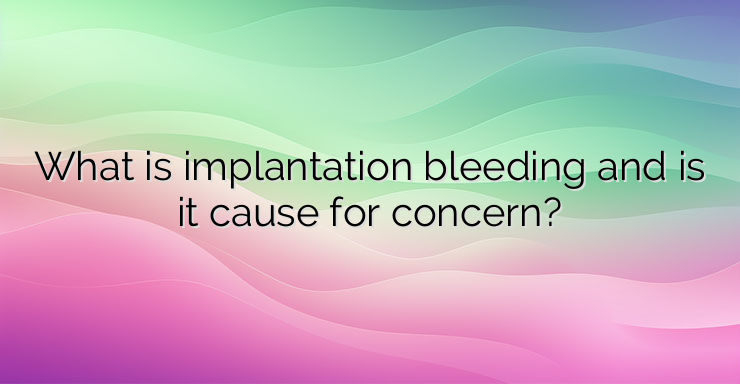Implantation bleeding usually occurs between the sixth and twelfth day after conception, when the fertilized egg attaches to the lining of the uterus. Some women may mistake it for a regular cycle as it may look similar and appear around the time of their period. How can you tell if it’s implantation bleeding? And when is vaginal bleeding something to worry about? According to many medical professionals, implantation bleeding is quite common and occurs in about 25% of pregnancies. In many cases, this is the first sign of pregnancy. Most women think they just have a short period in their monthly cycle, but it’s actually implantation bleeding. Many women don’t even realize they’re pregnant until they take a pregnancy test. Unlike regular menstrual bleeding, implantation bleeding is very short-lived. It usually lasts no more than 24 to 48 hours. This is the time it takes for the fertilized egg to implant in the lining of the uterus. Usually, menstrual bleeding lasts for three to five days, characterized by heavier bleeding in the first days. Blood from implantation bleeding is usually dark brown or black, meaning it is older blood. But in some cases it can be pink or light red. And some women report just light spotting. It can be difficult for women to know the difference between implantation bleeding and a regular period, as the symptoms can be similar enough to be confused. Here are some major differences: 1. Regular menstrual cycle Lasts 3 to 7 days, with 2 to 3 days of bright red blood; Bleeding begins profusely and lightens toward the end; More severe uterine cramps that may occur before your period and last 2 to 3 days. 2. Implantation bleeding Usually lasts no more than 24 to 48 hours; Bleeding is usually very scanty and dark in color; Much milder (even non-existent) uterine cramps. When should you worry? All bleeding during pregnancy is considered pathological. Doctors take it very seriously and encourage pregnant women to report it. Although not all bleeding is an emergency or a sign of a complication, the doctor monitoring the pregnancy will want to perform tests, such as a vaginal ultrasound, to determine the cause. Bright red blood means you are actively bleeding. Especially if it is combined with the discharge of blood clots and pain it can be a sign of miscarriage or ectopic pregnancy. This is an emergency that requires immediate medical attention.


Leave a Reply